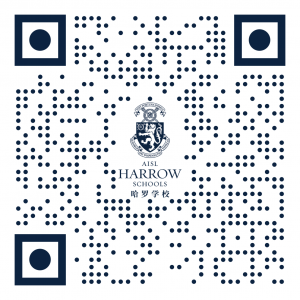Article written by Jo Evans, Deputy Headmistress of AISL Harrow Haikou. First appeared in the February 2023 issue of International School Leader Magazine.
It doesn’t have to be lonely at the top
As I was embarking on leadership in my career, I vividly remember a curt conversation with a very stressed Head teacher who told me to think carefully about moving into senior leadership roles because “it’s lonely at the top”.
This struck a chord because it was in complete contrast with the ethos of the school I worked in at that time, where I had just been given coaching training in order to support colleagues in my department in their professional development.
A crucial part of any leadership role is the relationships that you build that enable you and your team to develop strategies and actions to achieve success on shared goals. Whilst there is an expectation that those in leadership are there by virtue of the fact that they possess specific skills, it is unreasonable to assume that these are simply acquired, set and implemented in the right way from the start. Key to the development of any teacher, is a large support network and this is equally important for those in leadership.
The critical friend
Friends bring a high degree of unconditional positive regard. Critics are, at first sight at least, conditional, negative and intolerant of failure. A critical friend comes closest to what might be regarded as ‘true friendship’ – a successful marrying of unconditional support and unconditional critique.
A critical friend can be defined as a trusted person who asks provocative questions, provides data to be examined through another lens, and offers critiques whilst taking the time to fully understand the context and the outcomes that are being worked towards, advocating for success and caring about the outcomes.
“It’s important to remember, we too are only human.”
Coaching
The importance of coaching has long been recognised in many industries and at all levels.
In order to support the development of performance through personal assessment of specific goals, and the skills and actions required to attain them, the focus is very much on allowing the coachee to explore solution-focused approaches to problems based on what they already know and the skills they currently have, as opposed to offering advice. This process is valuable at any stage of a career, but perhaps more so as a leader, when it can often be difficult to work though issues with colleagues when confidentiality is important.
Similarly, the need for coaching training is paramount for all leaders. Being able to deliver coaching conversations, either in a formal capacity or by asking the right questions informally, is a key part of a leadership role.
Creating a coaching culture
It’s no great secret that timely feedback is key to improvement. We know this is the case with our students and we are keen to ensure that they are given this, but can the same be said for our staff?
Traditional staff appraisal methods – of interim and annual review meetings – are being questioned in many schools. A more fluid, coaching approach is increasingly being invested in through training, time provision and software packages for recording progress. A more informal but regular appraisal approach of observation, timely feedback and conversation provides a greater awareness of development areas but also builds a supportive relationship; enabling staff to seek help without fear of judgement.
This does, however, come with a time cost. As a result, we are seeing a shift away from leaders being the sole provider of coaching and opening up the process across school structures, something that enables wider sources of support across different skill sets.
Reverse mentoring
A recent trend is that of reverse mentorship, which pairs a senior leader with a more junior colleague. This ties in very closely with the increase in digital transformation initiatives. Whilst digital change is positive and of benefit to students, those in school leadership can often feel overwhelmed by, and struggle with, new technologies. Mentoring from a (usually) younger staff member who has more knowledge and confidence in these areas can be very useful, but reverse mentoring does not stop there. Outside of education, CEOs and senior executives have embraced being mentored by more junior colleagues to provide different perspectives on a variety of areas such as diversity, wellbeing and innovation, breaking down stereotypes and bridging skills gaps on both sides.
Only human
We can see that support for leaders professionally comes from many angles, in many guises, but it’s equally important to remember that we too are only human. The awareness of supporting wellbeing and mental health is one positive gained from the COVID-19 pandemic. As the effects of this still permeate, never has a focus on wellbeing and mental health support at all levels been more important.
It’s a universal expectation that those in leadership need to be steadfast, resilient and measured at all times or, if they are not, to keep it behind closed doors. This isn’t to say that leaders should present as emotionless or unaffected by stressful situations, indeed a little vulnerability can go a long way. But it’s important for everyone to have a trusted friend who they can show frustrations to – someone who will listen intently, nod, sympathetically smile in the right places and simply empathise without the need to advise or necessarily comment.
It doesn’t have to be lonely at the top
Back to my former Head who felt it was lonely at the top. With hindsight, only now, having been the beneficiary of an excellent support programme for senior leaders and aspiring Head teachers, do I understand that this Head teacher had been failed by a system that led him to believe his role was an isolated one.
Had the right support been in place, he would have been surrounded by colleagues and external partners able to help him navigate the highs and lows of leadership, the challenges, successes and inevitable failures. At the very least, they would know when to pour a glass of wine and open their ears!




